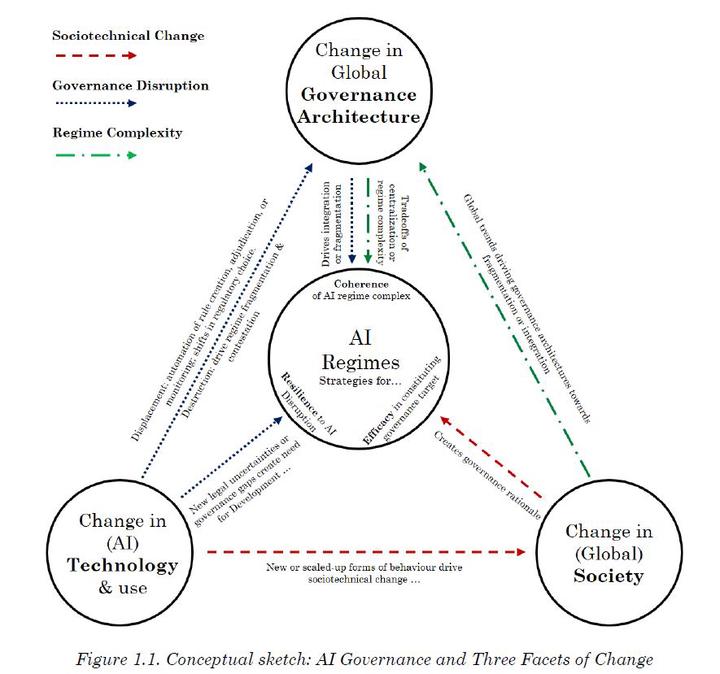
Abstract
This dissertation explores how we may govern a changing technology, in a changing world, using governance systems that may themselves be left changed. Artificial Intelligence (AI) has made remarkable progress in the past decade, and is anticipated to become an increasingly disruptive, even transformative technology. AI can be functionally understood as a diverse portfolio of computational techniques to improve the accuracy, speed, or scale of machine decision-making, producing capabilities that can support, substitute for-, or improve upon human task performance. The resulting breadth of application makes AI promising—and challenging — in so many domains of life. In recent years diverse AI applications — from facial recognition to automated legal decision-making, and from computational propaganda to Lethal Autonomous Weapons Systems — have raised deep ethical, political, legal and security concerns. With growing public and policymaker attention has come a wave of governance initiatives and proposals. Nonetheless, global governance for AI remains relatively fragmented and incipient. At this cross-roads, this dissertation takes up the research question, “How should global governance for artificial intelligence account for change?” To answer this question, this dissertation draws together scholarship on technology regulation, (international) law, and global governance, in order to unpack three facets of ‘change’ that will prove critical to the global governance of AI. These three facets of change are examined through the conceptual lenses of Sociotechnical Change, Governance Disruption, and Regime Complexity. Sociotechnical Change (Chapter 4) explores how and why technological change in AI produces societal changes that create a rationale for regulatory intervention, and how we can productively characterize the appropriate targets for AI governance. Along with material features, I distinguish six problem logics which highlight different governance solutions and conditions. Governance Disruption (Chapter 5) addresses when, where and why certain AI capabilities might drive or demand change in the substance (Development), tools or processes (Displacement) or political scaffolding (Destruction) of global governance itself, and what are the implications for global regime complexity. Regime Complexity (Chapter 6) helps focus attention on how prospective AI regimes are shaped by underlying changes in the broader global governance architecture. It provides insight into the (1) origins or foundations of AI regimes; the (2) topology of the AI ‘regime complex’; its (3) evolution towards integration or fragmentation; (4) the functional consequences of these paths; and (5) strategies for managing the AI regime complex. Through these three lenses, this dissertation explores key considerations, insights and tradeoffs for AI governance (Chapter 7). It argues that AI governance needs to shift or adopt novel strategies — in conceptual approach, instrument choice, and instrument design — to ensure the efficacy of AI regimes in tracking AI’s sociotechnical impacts, their resilience to future AI-driven disruption to the tools, norms or broader conditions of governance, and their coherence. In this way, AI governance regimes may remain fit for change.